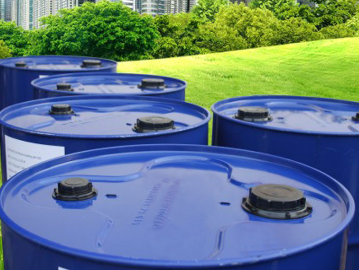
Unleashing Increased Efficiency: Understanding Gasoline Detergent
Introduction
In today's world, with increasing concerns about environmental pollution and the need for sustainable energy sources, automobile manufacturers and fuel companies are continually striving to improve the efficiency of gasoline engines. One key aspect to achieve this goal is the use of gasoline detergents. Gasoline detergents are additives that are added to gasoline to clean the fuel system, reduce engine deposits, and improve overall engine performance. In this article, we will explore the benefits and mechanisms behind gasoline detergents and how they can unleash increased efficiency in gasoline engines.
The Role of Gasoline Detergents
Gasoline detergents play a vital role in maintaining the cleanliness of the fuel system. Over time, when gasoline is burned, various deposits can accumulate in the engine. These deposits include carbon, varnish, and gum-like substances that can hinder the proper functioning of the fuel system. Gasoline detergents work by removing and preventing the formation of these deposits, ensuring the fuel system operates smoothly.
Benefits of Gasoline Detergents
1. Improved Fuel Economy: Deposits in the fuel system can disrupt the airflow and fuel distribution, leading to decreased fuel efficiency. Gasoline detergents help to remove these deposits and maintain optimal engine performance, resulting in improved fuel economy.
2. Reduced Emissions: Clean fuel systems prevent incomplete combustion, reducing the amount of harmful emissions released into the atmosphere. Gasoline detergents help to lower emissions of carbon monoxide, hydrocarbons, and nitrogen oxides, contributing to a cleaner environment.
3. Enhanced Engine Performance: Engine deposits can obstruct the proper functioning of fuel injectors, intake valves, and combustion chambers, leading to decreased power output and responsiveness. Gasoline detergents remove these deposits, restoring the engine's performance and ensuring smooth operation.
4. Prevention of Maintenance Issues: By preventing the formation of deposits, gasoline detergents help reduce the likelihood of maintenance issues such as clogged fuel injectors, fouled spark plugs, and malfunctioning sensors. This leads to lower maintenance costs and increased engine reliability.
Mechanisms of Gasoline Detergents
Gasoline detergents work through various mechanisms to effectively clean the fuel system and enhance engine performance:
1. Solubilization: Detergents contain surfactants that can dissolve and disperse deposits, preventing them from sticking to engine surfaces. This allows the deposits to be carried away through the combustion process.
2. Abrasion: Some detergents contain abrasive particles that can physically scrub away deposits. These particles are typically small and soft enough not to cause damage to the engine components.
3. Chemical Reaction: Certain detergents can chemically react with deposits, breaking them down into smaller, soluble compounds that are easier to remove. This helps to prevent the formation of new deposits.
Fuel Octane Ratings and Gasoline Detergents
Gasoline detergents are often incorporated in fuels with higher octane ratings. Octane rating represents the fuel's resistance to knocking or pinging, which can occur when the air-fuel mixture ignites prematurely. Adding detergents to high-octane fuel not only maintains engine cleanliness but also helps to protect against knocking, ensuring smooth and efficient engine operation.
Conclusion
Gasoline detergents have become an essential component in unleashing increased efficiency in gasoline engines. By effectively cleaning the fuel system, removing deposits, and enhancing engine performance, these detergents contribute to improved fuel economy, reduced emissions, and enhanced engine reliability. As automobile technology advances and environmental considerations become more prominent, the continuous development and utilization of gasoline detergents will play a crucial role in maximizing the efficiency of gasoline engines.